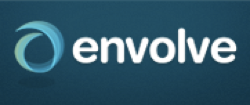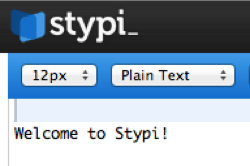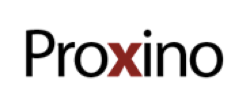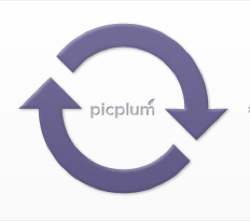31 startups from Y Combinator
 On August 23, Y Combinator started the summer session of Demo Day, a bi-annual event where this reputable startup incubator demonstrates its new projects to many investors.
On August 23, Y Combinator started the summer session of Demo Day, a bi-annual event where this reputable startup incubator demonstrates its new projects to many investors.Since most of the new trends in Internet business are still coming from the USA, we decided to translate the article The Ultimate Roundup , which presents 31 interesting startups, many of which can serve as a source of inspiration for Internet entrepreneurs and in Russian Internet.
This time the success was simply amazing. 63 companies (by the way, the previous record of Y_Combinator with 43 participants of Demo Day was broken) for three and a half hours spoke to the audience with short two-minute presentations. The hall, as usual, was filled with dozens of significant investors associated with Silicon Valley; and none of them left frustrated (unlike their less fortunate colleagues who could not register on time and get to the event).
')
Considering the large number of startups that were presented, YC even created a simple application that allows investors to track companies that they would like to talk with in more detail - just press the Like button opposite the company name, and its founder will be notified that they want to talk.
This time, YC changed their approach to financing companies before Demo Day. We are talking about Angel Day - an event that sometimes preceded the main event. Business angels were specially invited to it, who could invest in companies before they show themselves on Demo Day. Sometimes this led to the fact that some companies left the market either with excessive attention of investors, or without concluding a single deal. Now the order of things is different: each represented company is equally available to raise funds.
Of course, all companies are eternally grateful to Yuri Milners Start Fund and SV Angel, who jointly invested $ 150,000 in almost every company represented in today's group (Start Fund started investing in the last group and announced its participation in the current TechCrunch Disrupt NYC event).
Important note: in spite of the fact that today 63 companies were represented, a significant part of them pass as not subject to publicity and, therefore, are not included in the article.
AISLE50
 Aisle50 can be described as Group for food. The company claims that the volume of the packaged goods market is $ 2 trillion. Manufacturers, including Procter & Gamble, General Mills and Kraft spend $ 35 billion a year on marketing; half of these funds are spent on blocks of advertisements in printed products that are full of food products. But when these brands move online, they no longer want to be placed on the same page as their competitors. Aisle50 allows them to get into the beam of a personal searchlight - you are presented with one new product per day (Grupon uses a similar method). Buy it, and the purchase will be considered a discount card of your supermarket. The company has contracts with many large grocery stores, for example, Lowes Foods, SuperValu, etc.
Aisle50 can be described as Group for food. The company claims that the volume of the packaged goods market is $ 2 trillion. Manufacturers, including Procter & Gamble, General Mills and Kraft spend $ 35 billion a year on marketing; half of these funds are spent on blocks of advertisements in printed products that are full of food products. But when these brands move online, they no longer want to be placed on the same page as their competitors. Aisle50 allows them to get into the beam of a personal searchlight - you are presented with one new product per day (Grupon uses a similar method). Buy it, and the purchase will be considered a discount card of your supermarket. The company has contracts with many large grocery stores, for example, Lowes Foods, SuperValu, etc.LAUNCHPAD TOYS
 Launchpad wants to be the new Lego Digital. Children adore tinkering using clay, or various constructors (wooden, for buildings, Lincoln Logs, or iron Erector Sets, etc.). Launchpad wants to allow children to do something similar on digital devices (for now, only on iOS). The company's first mobile application, Toontastic, develops creative imagination and allows children to create cartoons. They move hand-drawn characters on the touch screen, record audio, and then, on ToonTube, they can watch the cartoons they created in the format of a video album. Apple recently added the Launchpad to the AppStore's Hall of Fame.
Launchpad wants to be the new Lego Digital. Children adore tinkering using clay, or various constructors (wooden, for buildings, Lincoln Logs, or iron Erector Sets, etc.). Launchpad wants to allow children to do something similar on digital devices (for now, only on iOS). The company's first mobile application, Toontastic, develops creative imagination and allows children to create cartoons. They move hand-drawn characters on the touch screen, record audio, and then, on ToonTube, they can watch the cartoons they created in the format of a video album. Apple recently added the Launchpad to the AppStore's Hall of Fame.INTERVIEW STREET
 Interview Street is a platform for identifying talented applicants, which use special tasks for programmers (it is better and easier to administer than regular ones). Companies already using the platform: Facebook, Amazon and Zynga. Interview Street earns about $ 10,000 per programmer each (each company pays according to the number of tests required). If you are going to build the largest database of programmers, Interview Street doubles your monthly income and already makes a profit.
Interview Street is a platform for identifying talented applicants, which use special tasks for programmers (it is better and easier to administer than regular ones). Companies already using the platform: Facebook, Amazon and Zynga. Interview Street earns about $ 10,000 per programmer each (each company pays according to the number of tests required). If you are going to build the largest database of programmers, Interview Street doubles your monthly income and already makes a profit.MIXRANK
 MixRank have created a spyware tool for adsense . What does it mean?
MixRank have created a spyware tool for adsense . What does it mean?The search bot MixRank indexes all pages where ads from Google AdSense are placed. Google sorts ads by their effectiveness, and a startup collects this information and assesses the success of advertising with the audience. As we wrote in June, the service provided by MixRank brings a lot of interesting data to advertisers. Using the panel of this startup, users can see that the success of the advertising message depends on the different wording. MixRank provides business analytics using Google data in conjunction with its own index results.
DOUBLERECALL
 DoubleRecall is a platform that allows businesses to easily launch advertising campaigns to promote brands that “really encourage users to read advertisements.” A news article, for example, may include an advertisement that asks users to select two words and enter them in the text box below. This is not so difficult and really works - and, in some cases, so effectively that the publisher does not need to enter a paid access to his content. The first client is Forbes. This format is much more efficient than the usual types of advertising. Publishers make more profit, advertisers are remembered, and users get free content with less advertising. The startup was “born” in Europe, making a profit of $ 150 thousand in 3 months. The company collaborates with Impre Media, Addmired, Forbes, Conde Nast and Pe.com.
DoubleRecall is a platform that allows businesses to easily launch advertising campaigns to promote brands that “really encourage users to read advertisements.” A news article, for example, may include an advertisement that asks users to select two words and enter them in the text box below. This is not so difficult and really works - and, in some cases, so effectively that the publisher does not need to enter a paid access to his content. The first client is Forbes. This format is much more efficient than the usual types of advertising. Publishers make more profit, advertisers are remembered, and users get free content with less advertising. The startup was “born” in Europe, making a profit of $ 150 thousand in 3 months. The company collaborates with Impre Media, Addmired, Forbes, Conde Nast and Pe.com.Envolve
 Envolve offers customizable chat rooms for websites. The service serves chats already for 28,000 resources. Envolve is easily installed on the site using JavaScript and users who use chat spend 4 times more time on the site. The number of chat messages per day has increased by 29% per month over the past 13 months; users total about 300,000 messages per day. Envolve is used on UMG, Mitsubishi and Wired sites.
Envolve offers customizable chat rooms for websites. The service serves chats already for 28,000 resources. Envolve is easily installed on the site using JavaScript and users who use chat spend 4 times more time on the site. The number of chat messages per day has increased by 29% per month over the past 13 months; users total about 300,000 messages per day. Envolve is used on UMG, Mitsubishi and Wired sites.QUARTZY
 Quartzy is a marketplace for raw materials and equipment for the natural sciences. This market is estimated at $ 9 billion. 500,000 scientists buy goods from about 1000 suppliers who have not yet established a normal presentation of their products using something like Google Docs. Quartzy helps laboratories streamline this whole household. Quartzy: “We have chosen a different path” - now the site lacks only the “buy” button, so that the inventory system becomes a full-fledged online store.
Quartzy is a marketplace for raw materials and equipment for the natural sciences. This market is estimated at $ 9 billion. 500,000 scientists buy goods from about 1000 suppliers who have not yet established a normal presentation of their products using something like Google Docs. Quartzy helps laboratories streamline this whole household. Quartzy: “We have chosen a different path” - now the site lacks only the “buy” button, so that the inventory system becomes a full-fledged online store.MUNCH ON ME
 Munch on Me proposes to apply the model Groupon and LivingSocial to the restaurant industry in order to become your resource of “hot offers for hot dishes”. From a consumer point of view, the mission of Munch On Me is to help restaurants draw attention to themselves. This is a marketing solution for local restaurants, allowing them to control the visitors' impressions of dinner and even increase the volume of orders. According to the information of this startup, up to 75% of customers go further and buy some dishes for the full price. While Grupon and LivingSocial are a one-stop solution (aimed at bargain hunters), Munch On Me aims to retain customers. He advertises 100% customer retention and increases profits monthly.
Munch on Me proposes to apply the model Groupon and LivingSocial to the restaurant industry in order to become your resource of “hot offers for hot dishes”. From a consumer point of view, the mission of Munch On Me is to help restaurants draw attention to themselves. This is a marketing solution for local restaurants, allowing them to control the visitors' impressions of dinner and even increase the volume of orders. According to the information of this startup, up to 75% of customers go further and buy some dishes for the full price. While Grupon and LivingSocial are a one-stop solution (aimed at bargain hunters), Munch On Me aims to retain customers. He advertises 100% customer retention and increases profits monthly.DEBTEYE
 Debteye is an automated credit consulting platform for those who have a heavy debt burden. According to Debteye, 10 million people spend over $ 2 billion on credit consulting and loan programs to help them get out of debt. The problem is that credit consulting requires time and effort, but Debteye is a simple automated software that analyzes consumer finances, recommends action plans and even negotiates with creditors. Debteye aims to turn a three-day trial into a seven-minute act, and apparently it works. Debteye customers save an average of $ 7,000 on high-priced solutions thanks to a team assembled from credit counseling experts.
Debteye is an automated credit consulting platform for those who have a heavy debt burden. According to Debteye, 10 million people spend over $ 2 billion on credit consulting and loan programs to help them get out of debt. The problem is that credit consulting requires time and effort, but Debteye is a simple automated software that analyzes consumer finances, recommends action plans and even negotiates with creditors. Debteye aims to turn a three-day trial into a seven-minute act, and apparently it works. Debteye customers save an average of $ 7,000 on high-priced solutions thanks to a team assembled from credit counseling experts.PAPERLINKS
 Paperlinks is a startup that seeks to become the main suppliers of QR codes for businesses and brands, with a special emphasis on the design of codes. Paperlinks turns advertising posters into virtual vending machines. At first, users read the link from a QR code reader, which is essentially close to familiar applications of the same functionality. However, Paperlink also allows you to pay for a product from a poster after reading the code, and then pick it up at the store.
Paperlinks is a startup that seeks to become the main suppliers of QR codes for businesses and brands, with a special emphasis on the design of codes. Paperlinks turns advertising posters into virtual vending machines. At first, users read the link from a QR code reader, which is essentially close to familiar applications of the same functionality. However, Paperlink also allows you to pay for a product from a poster after reading the code, and then pick it up at the store.Consumers are already taking advantage of the advantages offered, and startup sales double every month. Clients include Nestle, Live Nation, and GNC. However, it is already close to the peak point: only 14 million Americans scanned the QR code in June.
PAGELEVER
 Many brands and companies have their offices on Facebook, but the internal analytics of the social networking giant is not complete enough. PageLever tries to improve Facebook analytics by allowing users to easily control page activity. He is able to answer questions such as: “How quickly did users lose interest in the status of a new offer, or continued to comment on it a day after publication?” By now, the project has interested Disney, Starbucks, YouTube and other brands, allowing them to follow consumer behavior after they become subscribers to the page. PageLever is currently growing at a rate of 50% per week. The company is planning an aggressive expansion, as sociality is firmly established on the Internet.
Many brands and companies have their offices on Facebook, but the internal analytics of the social networking giant is not complete enough. PageLever tries to improve Facebook analytics by allowing users to easily control page activity. He is able to answer questions such as: “How quickly did users lose interest in the status of a new offer, or continued to comment on it a day after publication?” By now, the project has interested Disney, Starbucks, YouTube and other brands, allowing them to follow consumer behavior after they become subscribers to the page. PageLever is currently growing at a rate of 50% per week. The company is planning an aggressive expansion, as sociality is firmly established on the Internet.MARKETBRIEF
 MarketBrief automatically converts difficult-to-read SEC files (US Securities and Exchange Commission) into easy-to-learn news articles. Public companies are obliged to report on all their actions - last year the total volume of SEC reports amounted to 8.5 million pages, which only experts can figure out. However, with MarketBrief, these files are literally transformed within a minute. The founders are the same people who were at the origins of SECWatch, a service that allows you to quickly index SEC files, but without the articles that were used as the basis for MarketBrief. This service is close to what Narrative Science does for GameChanger.
MarketBrief automatically converts difficult-to-read SEC files (US Securities and Exchange Commission) into easy-to-learn news articles. Public companies are obliged to report on all their actions - last year the total volume of SEC reports amounted to 8.5 million pages, which only experts can figure out. However, with MarketBrief, these files are literally transformed within a minute. The founders are the same people who were at the origins of SECWatch, a service that allows you to quickly index SEC files, but without the articles that were used as the basis for MarketBrief. This service is close to what Narrative Science does for GameChanger.SNAPJOY
 Snapjoy wants to offer you to keep all your photos in the clouds. What for? Take Apple's widely advertised iCloud application: despite the fact that iCloud offers an important photo synchronization feature, the new version of the program cannot become a “home” for your photos, since they are stored there for only 30 days. As for Snapjoy, it connects storage functions in the form of a cloud and automatic organization. Fifteen days after the launch of Snapjoy, 2,500 users have already uploaded 1.8 million photos, an average of 700 photos per user. “Our client is any person with photos that need to be saved,” says co-founder Michael Don.
Snapjoy wants to offer you to keep all your photos in the clouds. What for? Take Apple's widely advertised iCloud application: despite the fact that iCloud offers an important photo synchronization feature, the new version of the program cannot become a “home” for your photos, since they are stored there for only 30 days. As for Snapjoy, it connects storage functions in the form of a cloud and automatic organization. Fifteen days after the launch of Snapjoy, 2,500 users have already uploaded 1.8 million photos, an average of 700 photos per user. “Our client is any person with photos that need to be saved,” says co-founder Michael Don.OPEZ
 Opez is designed to help service professionals solve an important problem: preserving their customer base. When independent specialists, for example, hairdressers, bartenders, or DJs change jobs, they often part with their regular customers (who remain with the institution, and not with the master - Ed. ). Opez provides users with information about where a particular specialist works and gives the opportunity to leave feedback. Opez is intended to change the balance of power in favor of a specialist, and not his place of work.
Opez is designed to help service professionals solve an important problem: preserving their customer base. When independent specialists, for example, hairdressers, bartenders, or DJs change jobs, they often part with their regular customers (who remain with the institution, and not with the master - Ed. ). Opez provides users with information about where a particular specialist works and gives the opportunity to leave feedback. Opez is intended to change the balance of power in favor of a specialist, and not his place of work.Opez allows you to monitor a particular bartender in this way, and he, in turn, gives you the opportunity to send coupons to customers, to report on special promotions - in general, to keep customers informed.
Another feature of Opez is to offer users from the service sector to create their branded business cards, allowing them to advertise their brand on a “viral” basis. According to co-founder Chris Tam, a startup wants to create their own groupon for independent service professionals.
BUSHIDO
 Bushido is a cloud-based application store built on APIs and AWS, Mailgun, and other databases. Bushido allows developers to focus on their applications by offering them a number of off-the-shelf solutions like a common authorization center for all applications, hosting and payment system — all what the developers do not like to do on their own. Users using one of the applications also become Bushido users, which allows them to access other applications without having to register again. Information received by Bushido remains here. At the moment, users have completed 8,000 application downloads.
Bushido is a cloud-based application store built on APIs and AWS, Mailgun, and other databases. Bushido allows developers to focus on their applications by offering them a number of off-the-shelf solutions like a common authorization center for all applications, hosting and payment system — all what the developers do not like to do on their own. Users using one of the applications also become Bushido users, which allows them to access other applications without having to register again. Information received by Bushido remains here. At the moment, users have completed 8,000 application downloads.STYPI
 Stypi is a startup reminiscent of Etherpad, bought by Google in 2009 . Stypi focuses on enabling collaborative realtime development and improving synchronization between native applications. Over time, Stypi plans to “teach” all native programs to interact with each other.
Stypi is a startup reminiscent of Etherpad, bought by Google in 2009 . Stypi focuses on enabling collaborative realtime development and improving synchronization between native applications. Over time, Stypi plans to “teach” all native programs to interact with each other.PROXINO
 Proxino is a “smart javascript proxy” that helps developers track errors on the client side in the code. Proxino scans the code, fixes errors and tells developers what is going wrong. Proxino also compresses and caches code to increase speed.
Proxino is a “smart javascript proxy” that helps developers track errors on the client side in the code. Proxino scans the code, fixes errors and tells developers what is going wrong. Proxino also compresses and caches code to increase speed.MONGOHQ
 MongoHQ provides Mongo cloud-based database hosting with tasks such as deployment, backup, optimization, scalability, web-based tools, analytics and business analytics. The company's monthly profit now leaves $ 50K and grows by 13.2% per week. The range of investors includes Maynard Webb (LiveOps) and Scott McNealy (Sun Microsystems).
MongoHQ provides Mongo cloud-based database hosting with tasks such as deployment, backup, optimization, scalability, web-based tools, analytics and business analytics. The company's monthly profit now leaves $ 50K and grows by 13.2% per week. The range of investors includes Maynard Webb (LiveOps) and Scott McNealy (Sun Microsystems).Zigfu
 Zigfu offers a solution for developers that makes it easier to create applications for motion capture devices (especially for Microsoft Kinect). Zigfu's installer OpenNI installer allows developers to deploy a development environment with one click by combining OpenNI, NITE and SensorKinect and their automatic configuration. The startup seeks to help developers simplify working with Kinect, creating applications and delivering them to users. To date, over 100 developers and engineers are working with Zigfu.
Zigfu offers a solution for developers that makes it easier to create applications for motion capture devices (especially for Microsoft Kinect). Zigfu's installer OpenNI installer allows developers to deploy a development environment with one click by combining OpenNI, NITE and SensorKinect and their automatic configuration. The startup seeks to help developers simplify working with Kinect, creating applications and delivering them to users. To date, over 100 developers and engineers are working with Zigfu.PARSE
 Startup Parse is Heroku ( for Habré about him - approx. Ed.) For mobile applications. The service provides the back end for mobile applications within a few minutes, allowing developers to avoid having to rewrite network code, synchronization code, and caching. With the Parse SDK, developers don't have to think about servers or server codes. At this stage, Parse supports Android and iOS, solving problems that may arise when developing for two operating systems. Parse is developing a trend that began with the advent of AWS in 2006. Within 11 weeks of closed beta testing, Parse collected $ 1.4 million in revenue.
Startup Parse is Heroku ( for Habré about him - approx. Ed.) For mobile applications. The service provides the back end for mobile applications within a few minutes, allowing developers to avoid having to rewrite network code, synchronization code, and caching. With the Parse SDK, developers don't have to think about servers or server codes. At this stage, Parse supports Android and iOS, solving problems that may arise when developing for two operating systems. Parse is developing a trend that began with the advent of AWS in 2006. Within 11 weeks of closed beta testing, Parse collected $ 1.4 million in revenue.SCIENCE EXCHANGE
 Science Exchange - the exchange of contractors for scientific experiments. Scientists are constantly attracting resources from outside to conduct experiments. Science Exchange allows them to conduct experiments in laboratories, where there is the necessary equipment, which may not be in their home university. At the moment, Science Exchange is working with more than a thousand scientists who have spent about $ 100,000 outsourcing in experiments. Nature (one of the leading scientific journals) writes that "this can change the way scientists approach research."
Science Exchange - the exchange of contractors for scientific experiments. Scientists are constantly attracting resources from outside to conduct experiments. Science Exchange allows them to conduct experiments in laboratories, where there is the necessary equipment, which may not be in their home university. At the moment, Science Exchange is working with more than a thousand scientists who have spent about $ 100,000 outsourcing in experiments. Nature (one of the leading scientific journals) writes that "this can change the way scientists approach research."Verbling
 If you have ever studied a foreign language, then you know that it is sometimes difficult to memorize new language information, and the process of learning a new language is sometimes tiresome. Verbling gives language learners the opportunity to practice with each other through live communication through video. The program instantly connects learners of Spanish with each other in real time, another 9,000 people have already subscribed to languages that are not yet available. As a rule, the geographical distance between native speakers and learners is a serious barrier to effectively learning a new language. Verbling hopes to fix this problem by offering live video chat as a solution.
If you have ever studied a foreign language, then you know that it is sometimes difficult to memorize new language information, and the process of learning a new language is sometimes tiresome. Verbling gives language learners the opportunity to practice with each other through live communication through video. The program instantly connects learners of Spanish with each other in real time, another 9,000 people have already subscribed to languages that are not yet available. As a rule, the geographical distance between native speakers and learners is a serious barrier to effectively learning a new language. Verbling hopes to fix this problem by offering live video chat as a solution.MOBILEWORKS
 MobileWorks allows you to outsource your tasks overseas. The company makes a strict selection of performers, carries out reputational control and error control, thus ensuring that the work of contractors will be of high quality. Crowdsourcing is still limited to ten areas such as document digitization, Internet search and speech recognition. MobileWorks allows you to use them all.
MobileWorks allows you to outsource your tasks overseas. The company makes a strict selection of performers, carries out reputational control and error control, thus ensuring that the work of contractors will be of high quality. Crowdsourcing is still limited to ten areas such as document digitization, Internet search and speech recognition. MobileWorks allows you to use them all.Vidyard
 Vidyard - YouTube for business. “YouTube's rabbit hole,” says Vidyard, “takes traffic (or clicks) from the site to YouTube.” There it is difficult to manage comments, among which there can be many negative ones, and advertising inside the video may be the only way to bring the audience back to the company’s website. Vidyard wants to create the best solution for any business using online video. The startup attracted, among other things, $ 570K from SV Angel, Dennis Kavelman (formerly COO RIM).
Vidyard - YouTube for business. “YouTube's rabbit hole,” says Vidyard, “takes traffic (or clicks) from the site to YouTube.” There it is difficult to manage comments, among which there can be many negative ones, and advertising inside the video may be the only way to bring the audience back to the company’s website. Vidyard wants to create the best solution for any business using online video. The startup attracted, among other things, $ 570K from SV Angel, Dennis Kavelman (formerly COO RIM).TAGSTAND
 Tagstand is an NFC platform that allows you to manage NFC tags. They include short links (such as bit.ly), which can be changed online even after the sticker with the label is already placed “in the field” (for example, on store shelves - editor's note ). You can also get analytics for each individual sticker. Tagstand profits are tripled every month.
Tagstand is an NFC platform that allows you to manage NFC tags. They include short links (such as bit.ly), which can be changed online even after the sticker with the label is already placed “in the field” (for example, on store shelves - editor's note ). You can also get analytics for each individual sticker. Tagstand profits are tripled every month.KICKSEND
 Kicksend service is a simple way to share files with loved ones. Kicksend seeks to facilitate the process of sharing large files to people who are with computers on "you." Of course, there are a lot of file sharing services on the Web, but many of them are quite difficult to use, have a messy interface, are expensive or have too many limitations, which are outlined in small print at the bottom of the page.
Kicksend service is a simple way to share files with loved ones. Kicksend seeks to facilitate the process of sharing large files to people who are with computers on "you." Of course, there are a lot of file sharing services on the Web, but many of them are quite difficult to use, have a messy interface, are expensive or have too many limitations, which are outlined in small print at the bottom of the page.As we already wrote, “users can register or log in via their Facebook account to see which of their friends already uses Kicksend. After logging in, you need to complete three simple steps to send files. Simply drag and drop files of any size into the Kicksend home page window and select recipients (recipients only need an email address, they don’t need to have an account), then simply click the submit button. Easy peasy".
VIMESSA
 Vimessa allows you to send video messages to anyone. Company co-founder Peter Clark says he likes to think of Vimessa as a “video mail”. The service combines the convenience of SMS and "the magic of Skype video chat." Vimessa strives to be at the forefront of the “revolution of the front face of the camera” (the camera on laptops has already become the standard, and more and more mobile devices are acquiring it - Ed. ).
Vimessa allows you to send video messages to anyone. Company co-founder Peter Clark says he likes to think of Vimessa as a “video mail”. The service combines the convenience of SMS and "the magic of Skype video chat." Vimessa strives to be at the forefront of the “revolution of the front face of the camera” (the camera on laptops has already become the standard, and more and more mobile devices are acquiring it - Ed. ).CAN'T WAIT
 Can't Wait - is a social network around movie trailers. Can't Wait sends you reminders when your favorite movies are available for hire, and also allows you to buy tickets using the iPhone app. The closest competitor of this service is trailers.apple.com, which allows you to track updates only via RSS.
Can't Wait - is a social network around movie trailers. Can't Wait sends you reminders when your favorite movies are available for hire, and also allows you to buy tickets using the iPhone app. The closest competitor of this service is trailers.apple.com, which allows you to track updates only via RSS.CODECADEMY
 In Codecademy, people start learning programming. Books and videos, as a rule, are not very suitable for learning the basics, so Codecademy offered a simple and interactive alternative. The application was launched only 4 days ago and already has more than 250,000 users - and these are people who are actively completing tasks. Most users spend more than an hour on the site. Currently 8 simple JavaScript lessons are available.
In Codecademy, people start learning programming. Books and videos, as a rule, are not very suitable for learning the basics, so Codecademy offered a simple and interactive alternative. The application was launched only 4 days ago and already has more than 250,000 users - and these are people who are actively completing tasks. Most users spend more than an hour on the site. Currently 8 simple JavaScript lessons are available.PICPLUM
 Picplum is a service that allows you to quickly and regularly send printed photos (as opposed to ordinary digital files) to friends and family with minimal expenses. Subscribe to the service and send your favorite photos as they become available - Picplum takes care of the rest. Service cost - from $ 7 per month. Taking into account how much complexity is sorting photos, their printing and sending, the price justifies itself.
Picplum is a service that allows you to quickly and regularly send printed photos (as opposed to ordinary digital files) to friends and family with minimal expenses. Subscribe to the service and send your favorite photos as they become available - Picplum takes care of the rest. Service cost - from $ 7 per month. Taking into account how much complexity is sorting photos, their printing and sending, the price justifies itself.INTERSTATE
 Interstate's task is to offer developers a project management tool in the niche between the rustic Basecamp from 37signals and PivotalTracker, which may be overly complex for some tasks.
Interstate's task is to offer developers a project management tool in the niche between the rustic Basecamp from 37signals and PivotalTracker, which may be overly complex for some tasks.The application has all the necessary functionality to manage the development plan: you can monitor the current status of all tasks (and subtasks), estimate how things will be in the next few weeks, add files to each task. If you wish, you can also make part of your development plan public.
Source: https://habr.com/ru/post/98526/
All Articles